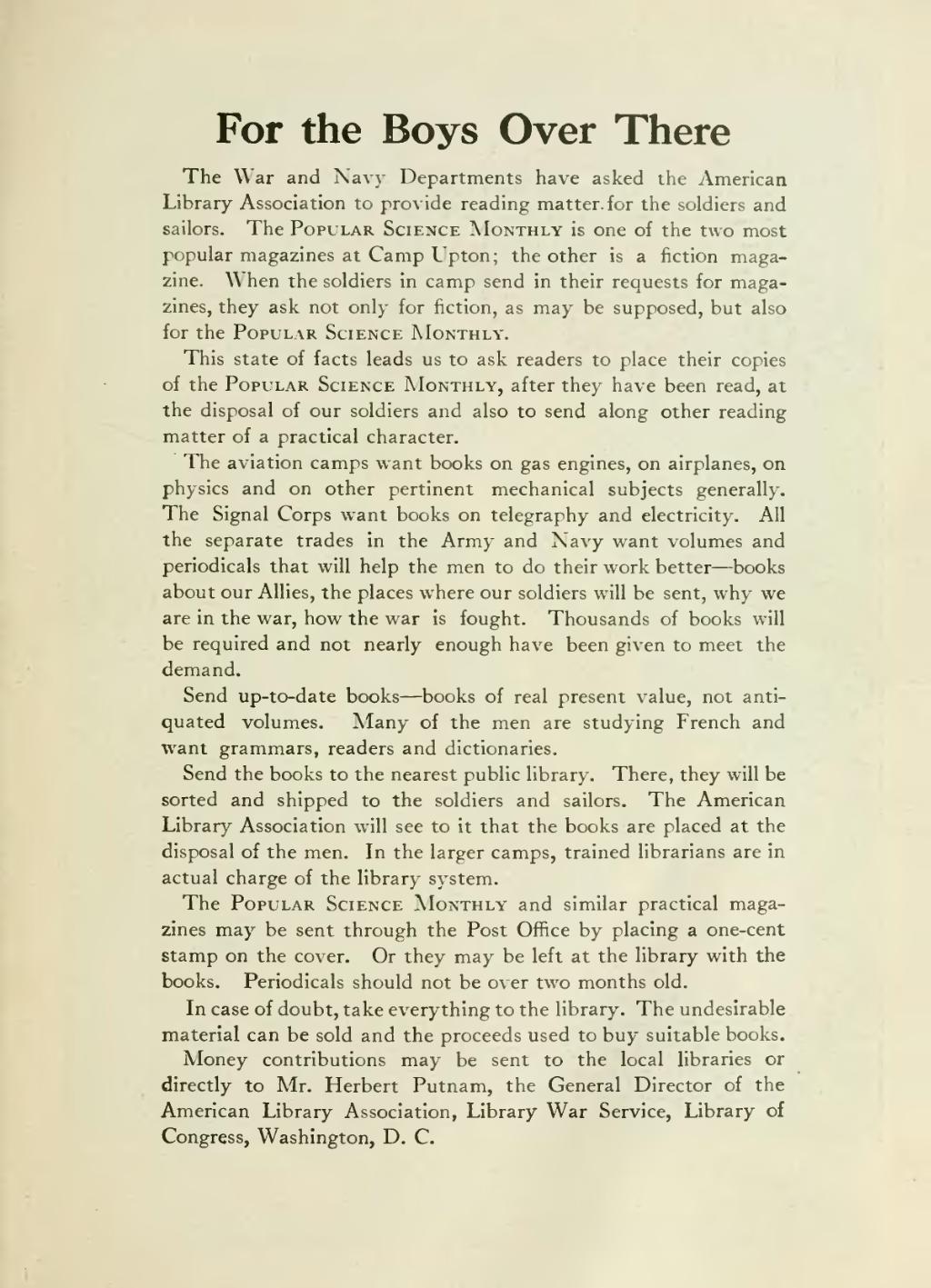For the Boys Over There
The War and Navy Departments have asked the American Library Association to provide reading matter, for the soldiers and sailors. The Popular Science Monthly is one of the two most popular magazines at Camp Upton; the other is a fiction magazine. When the soldiers in camp send in their requests for magazines, they ask not only for fiction, as may be supposed, but also for the Popular Science Monthly.
This state of facts leads us to ask readers to place their copies of the Popular Science Monthly, after they have been read, at the disposal of our soldiers and also to send along other reading matter of a practical character.
The aviation camps want books on gas engines, on airplanes, on physics and on other pertinent mechanical subjects generally. The Signal Corps want books on telegraphy and electricity. All the separate trades in the Army and Navy want volumes and periodicals that will help the men to do their work better—books about our Allies, the places where our soldiers will be sent, why we are in the war, how the war is fought. Thousands of books will be required and not nearly enough have been given to meet the demand.
Send up-to-date books—books of real present value, not antiquated volumes. Many of the men are studying French and want grammars, readers and dictionaries.
Send the books to the nearest public library. There, they will be sorted and shipped to the soldiers and sailors. The American Library Association will see to it that the books are placed at the disposal of the men. In the larger camps, trained librarians are in actual charge of the library system.
The Popular Science Monthly and similar practical magazines may be sent through the Post Office by placing a one-cent stamp on the cover. Or they may be left at the library with the books. Periodicals should not be over two months old.
In case of doubt, take everything to the library. The undesirable material can be sold and the proceeds used to buy suitable books.
Money contributions may be sent to the local libraries or directly to Mr. Herbert Putnam, the General Director of the American Library Association, Library War Service, Library of Congress, Washington, D. C.
